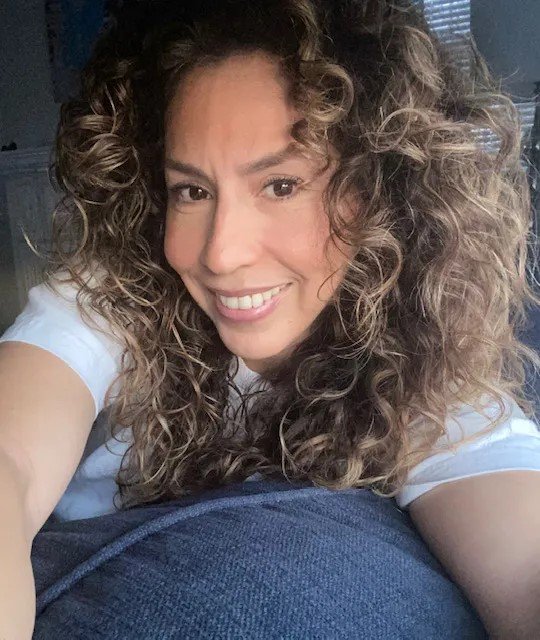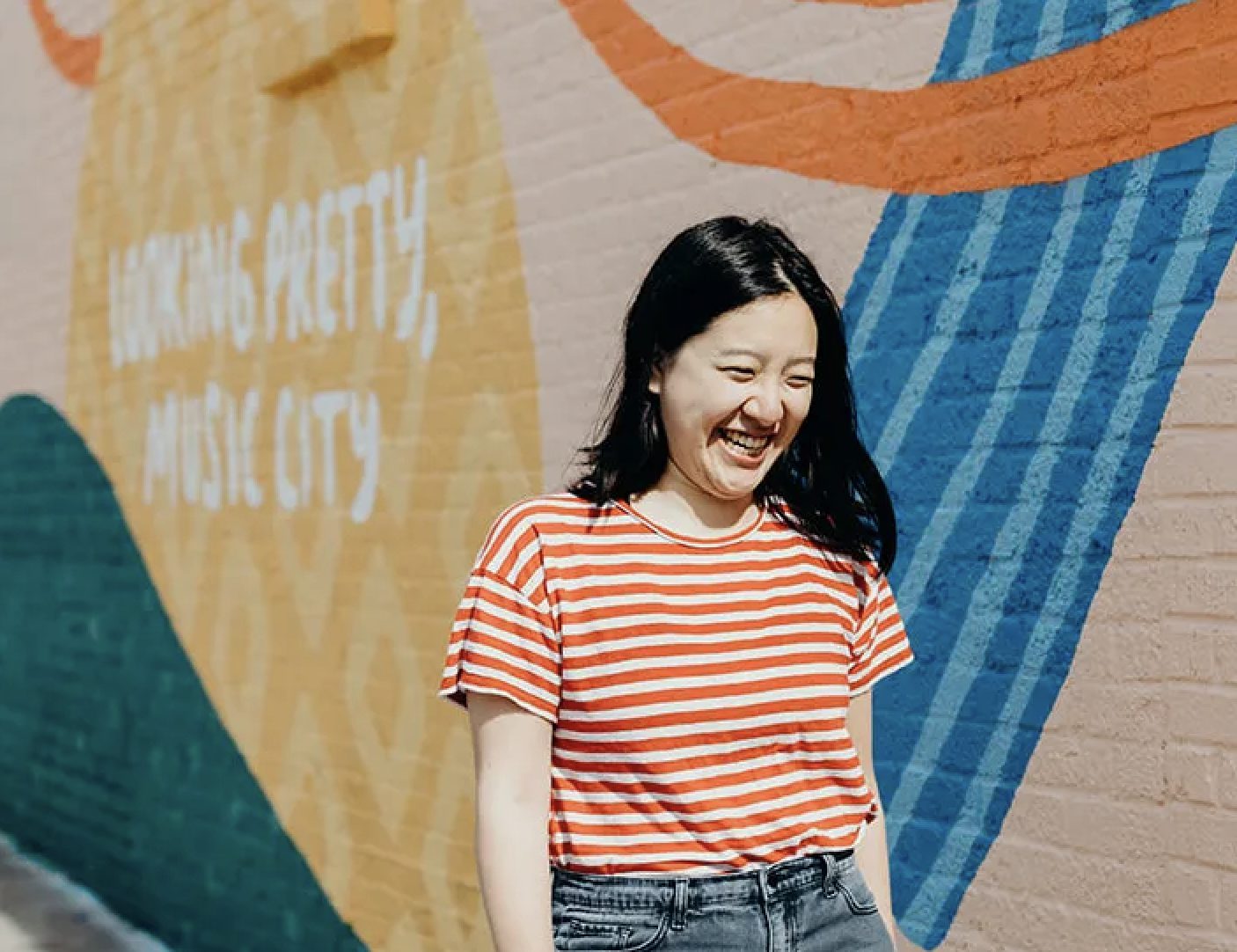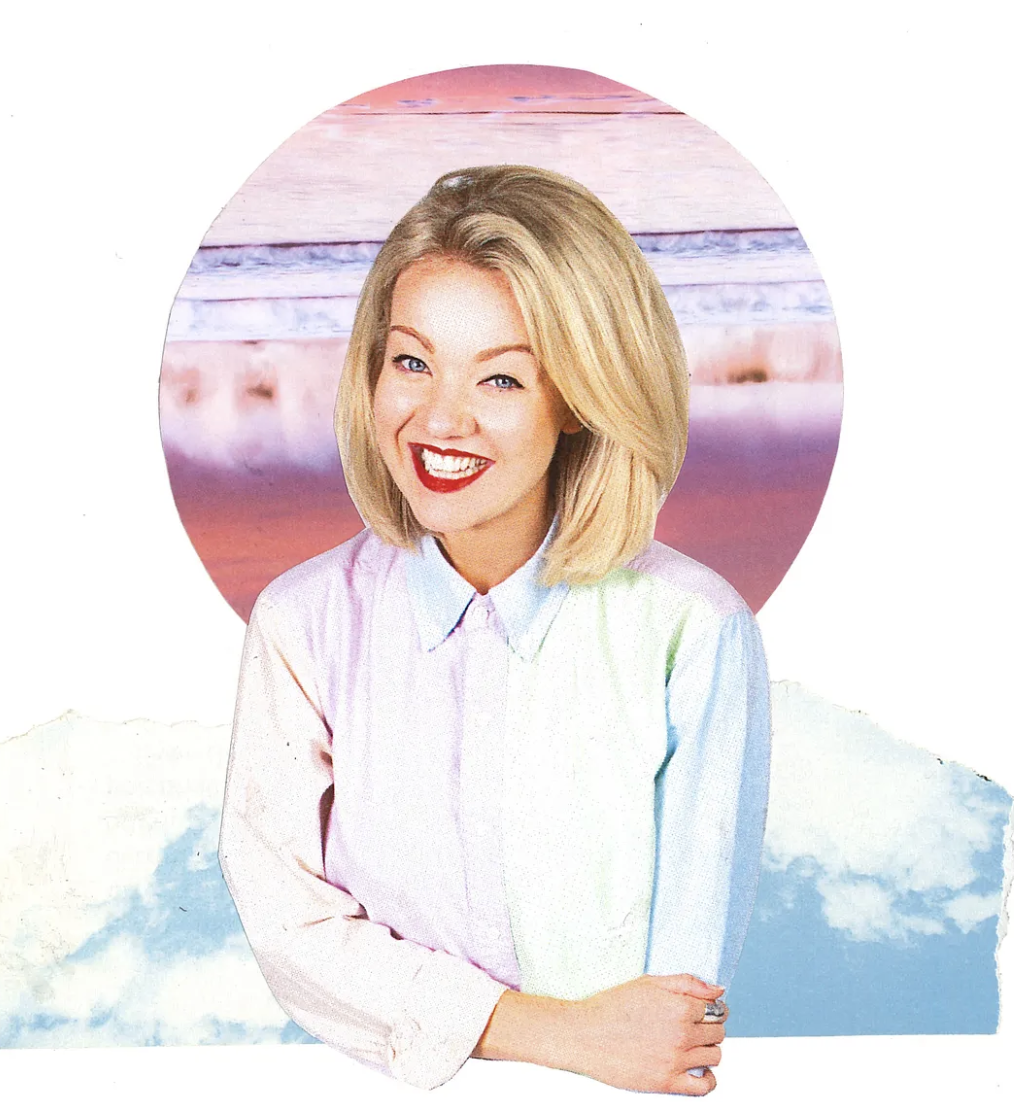On the music industry, representation, cancer recovery and The k*tkanker Book Project
Sarah Stam is an Amsterdam based music enthusiast who launched her own boutique artist management company set the tone . over five years ago. With a background in marketing, branding, PR and project management for international record labels and music brands, Sarah worked with companies like Spotify UK, Armada Music, Armin van Buurenand labels like UKF, NCS and TheSoundYouNeed amongst others. With a focus on developing young, independent talent, set the tone’s roster includes electronic producer Ellis, jazz fusion artist Hemai and R&B/soul vocalist Laura Roy amongst others.
Sarah was working as a freelancer in the music industry during the pandemic , when in November 2020, she was diagnosed with metastatic ovarian cancer.
Sarah says: “During my recovery process, I tried to find hope and inspiration in other women’s stories who had been through a similar diagnosis, because I had no idea how I was supposed to handle everything that I was faced with. As it turns out, there is so much medical information about cancer, but very few resources to help women through the day to day process, both in terms of practical and emotional sources.”
So she decided to create that resource herself, resulting in the k*tkanker book project.
The book touches upon more than just the medical trajectory. Sarah says: “We explore experiences of life with and after cancer. How do you deal with the mental issues that you face after your medical journey? What does the disease do with your sense of feminity and sexuality? This project is here to explore all different types of perspectives to such questions and offer a safe place or recognition for all types of women. A project with 50 different portraits of women between the ages of 20 and 100 years old with cancer from all walks of life.”
Read on for our Member Spotlight with Sarah.
shesaid.so: Can you tell us a bit more about your career journey to date and what you’ve most enjoyed?
It’s interesting as I always knew I wanted to work in music from the age of like 12 years old, but being from a small hometown in the north of the Netherlands I never thought I would be able to. I didn’t know anyone in music growing up so it seemed always like a bit of a dreamworld to me in all honesty. I had no idea which jobs were even out there. When I was 15 years old I visited my first festival in the Netherlands, watched Justice and guys like the Arctic Monkeys perform, and I thought to myself: This is the coolest thing ever. I know I don’t have enough talent to be on the stage, but those guys hanging on the side of the stage, maybe I can be like them. I studied general arts and management, and ended up doing my master thesis about streaming platforms. Bluffed my way into Spotify London at the time, when there were like 4 people working there, and that kinda kickstarted it. I definitely learned the most during my time at Dutch record label Armada Music, grew an international network, worked directly with artists and their managers, and got to know everything about the creation and marketing of music. After that I decided to start my own boutique artist management company set the tone. and it’s now exactly 5 years ago I signed my first artist and producer Ellis in London. There is honestly no place I’d rather be in the world right now then what I am doing right now, I can hardly believe I get to do what I get to do half of the time. To witness music being created, setting up the studio sessions, hearing the first session bounce, to then releasing music, putting it out into the world and seeing your artists perform: there is honestly no greater joy in life for me personally.
shesaid.so: What are your biggest learnings or top tips for artists/labels wanting to nail their marketing and branding?
Well that is a great question, with no timeless answer obviously. It’s hard to answer this without going into cliches, and throwing in words like authenticity or real connection with fans. I think my own biggest takeaway from the past few years is everyone is always following trends. but only a few are setting the trends. Do what feels authentic and natural to you, don’t look at others too much. Definitely always invest in growing those channels you control yourself, like soundcloud and youtube or your own Artist Spotify Playlist, so many people often only focus on those things out of their control. And honestly, if you plan timely you can achieve so much. I’be had the pleasure of working with and consulting for some fairly big artists and labels out there, and where it often goes wrong is bad communication and last minute planning. That’s an easy takeaway.
shesaid.so: You have been heavily involved in shesaid.so and she.grows, heading up shesaid.so Ams. What was your motivation to be involved, and what have you been most proud to work on or achieve?
Heading up the Amsterdam chapter of shesaid.so was an absolute pleasure. After meeting founder Andreea at a music conference in Norway and learning about the amazing mission and vision she had for the community, I couldn’t not fall in love with the community and it was an honor that she asked me to start the Amsterdam chapter at the time. We’ve had the pleasure to do some amazing real life events, but the she.grows mentorship program during ADE and Eurosonic were definite highlights, it is just amazing to connect women from all walks of life and see them help each other move forward.
shesaid.so: Throughout your career, what kind of progress have you seen in the industry in terms of equality, diversity and inclusion?
SS: Honestly, not as much as I would have hoped for. It’s shocking to realise it is 2022 and still 80% of the artist managers or music lawyers I deal with are white men. But it is on the other hand hopeful to see more and more companies trying to make an actual change by including more women in their boards as well as appointing diversity managers within their team.
shesaid.so: Can you tell us more about The k*tkanker Book Project and your journey behind it?
SS: Unfortunately I got diagnosed with metastatic ovarian cancer in November 2020, and instantly had so many questions, which started quite plastic (how is my scar going to look, how do you deal with hair loss from chemo) to later more mental focussed questions like: how do I live my life with cancer and how do I go about the insecurity of it all? Although there is a lot of medical information about cancer, I couldn’t find sufficient information about life with cancer. Evenmore so, most medical websites and information flyers are filled with stories from 65+ year old white women. I knew that if I was struggling to find any inspiring role models to gain courage from, this would be even more challenging for women of color. Hence I thought to myself: if I survive this treatment period, I will have to do something that ads to a more divers and inclusive information source about women with cancer. hence I started the k*tkanker project with an amazing team of friends and professionals. K*tkanker is a book and photo exhibition authored by 50 women between the ages of 20 and 100 years old who are battling breastcancer of a form of gynecological cancer. Fifty powerful, inspiring portraits and short stories that includes an additional section with over 100 tips of useful websites, smart insights and practical tips for women with cancer. You can support our project by donating to our crowdfund (https://www.voordekunst.nl/projecten/13688-ktkanker ), we need to hit 80% to make this special project a reality. First copies are in Dutch, but you can opt in on an English version of the book through our website: www.kutkanker.com
K*tkanker book project
shesaid.so: How has it been for you to work on the project? What have you learnt about yourself or otherwise?
SS: It’s been such an interesting journey honestly. I feel blessed to have connected with so many likeminded women, to hear so many different stories and learn that I am not alone. And the team of professionals working on this, dedicating their time and energy, and asking little to nothing in return, has been a very humbling experience. They are all such amazing professionals, and together we were able to capture 50 completely individual, different and divers stories. The days when we did the photoshoots for this project have been absolutely magical and special. To have 50 women who all are transformed by this horrible disease, open up and share their most beautiful and vulnerable self has been a unique experience I will carry with me forever.
All these women struggle with their cancer diagnosis on a day to day basis, and so many wished they had a book like this during their process, as it is so important to recognize yourself in someone else. Furthermore, I’ve mainly learned that making a book is way more work than I anticipated and that unfortunately the medical world is still very much behind when it comes to diversity and inclusivity.
shesaid.so: What do you hope it will provide for others?
SS: Speaking to over 100 women, I learned everyone missed something. Myself, I missed a powerful photo of someone who had a temporary stoma (colostamy bag) like myself but who would still go out, work out, travel, go to festivals and date for example. One of the black women in the book shared a very personal insight, saying she “never saw a black person on TV with cancer, thought all her life it was a disease for white people”, showcasing the lack of diveristy in imagery around women with cancer. Or someone else sharing she couldn’t find one photo example of how her scar would look on her pigmented skin after her mastectomy, being a Surinamese Hindustani (not sure this is the right ENGLISH translation) woman. I hope we can make a real change by telling these 50 real life stories and showing 50 powerful portraits of 50 incredible women, who happen to have cancer.
shesaid.so: How can people support the project? (Internationally too)
SS: People can donate to our crowdfund (https://www.voordekunst.nl/projecten/13688-ktkanker ) to help bring this book to life. We need a lot of money, due to the fact that we worked over a year on this book with a team of 12 people doing research, interviews and shooting 50 portraits, combined with relatively high paper prices due to COVID and wanting to create a high-quality full-color photobook for a reasonably low price so it’s accesible for all people at €29,99. You can pre-order a dutch copy of the book through the crowdfund, but also simply donate money without purchasing a book. Internationally, people can opt in on an English translated version of the book through our website (www.kutkanker.com), if we hit 100 opt ins, we’ll get the book translated and shipped internationally.
shesaid.so: One piece of advice that has impacted you?
SS: Fake it till you make it. To an extent. I once heard this said by someone who explained it as: of course don’t lie or get in over your head, but honestly the majority of people don’t know what they are doing, so be confident and know you can probably figure it out along the way. This has really resonated with me, especially when I started for myself as an artist manager, having only a record label background. The older I now get, the bigger the boardrooms I find myself in, the more I realize that indeed a lot of people don’t know what they are doing and you can figure it out along the way. Be informed, be on point and do your best, and you can basically do anything you set your mind to.
shesaid.so: Any music you currently have in heavy rotation that you’d like to share with others?
SS: I just went to Governors Ball in NYC where Tove Lo absolutely blew me away, what an artist, a proper rockstar of our time. Same for Ashniko, amazing performer. And a nice summer song to have on repeat is “Nobody” by Quentyn and KEV!
. . .
Here are those links again to support the k*ktanker book project:
You can support our project by donating to our crowdfund (https://www.voordekunst.nl/projecten/13688-ktkanker ), we need to hit 80% to make this special project a reality. First copies are in Dutch, but you can opt in on an English version of the book through our website: www.kutkanker.com










